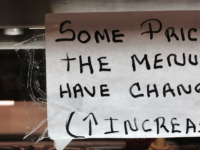The concerns over witness intimidation and bullying targeting Bill C-11’s critics continues to attract attention on Parliament Hill as Senators spent more than an hour debating the issue earlier this week. The issue stems from a Globe and Mail report that Canadian Heritage Parliamentary Secretary Chris Bittle – together with his colleague, Liberal MP Lisa Hepfner – sent a letter to the Lobbying Commissioner to seek an investigation into the funding of Digital First Canada, a group representing digital first creators. DFC’s Executive Director, Scott Benzie, appeared before the Heritage committee in the spring and Bittle used his time to focus on the organization’s funding. The Lobbyist Commissioner letter was apparently filed more than two months ago and Benzie had been assured that he was compliant with the law. The story was presumably leaked to coincide with Benzie’s appearance before the Senate committee, a tactic that smacked of witness intimidation and bullying with the government seeking to undermine a critic of the legislation. Soon after, Conservative MP John Nater filed a point of privilege in the House of Commons, arguing that Bittle had attempted to intimidate a Senate witness and the matter escalated further at the Senate committee, where multiple Senators raised the issue.

Fair Dealing by Giulia Forsythe (CC BY-NC-SA 2.0) https://flic.kr/p/dRkXwP
Copyright
Why the Online News Act is a Bad Solution to a Real Problem, Part Four: Undermining Canadian Copyright Law and International Copyright Treaty Obligations
The series on why Bill C-18, the Online News Act, is a bad solution in search of a real problem has thus far focused on three issues: the risk to the free flow of information stemming from mandatory compensation for linking, how the bill encourages clickbait and other low quality news given the absence of standards in the definition of “news content”, and the unprecedented government intervention in a sector where independence is essential. Today’s post raises an unlikely issue given that Bill C-18 is the responsibility of Canadian Heritage Minister Pablo Rodriguez, who also has part responsibility for copyright law in Canada. Buried within the bill is Section 24, a short provision with big copyright implications:
For greater certainty, limitations and exceptions to copyright under the Copyright Act do not limit the scope of the bargaining process.
What does this mean and why is it in the bill?
The Bill C-11 Hearings Are Back, Part Four: The Risks of a Trade Challenge and Tariff Retaliation
The first three posts in this series on Bill C-11 have focused on the risks of regulating user content, the risks to Canadian creators, and the risks of increased consumer costs and less competition. Today’s post identifies another risk with the bill: the prospect of a trade challenge under the CUSMA that could lead to billions on tariff retaliation that target some of Canada’s most important economic sectors. The possibility of a U.S. trade battle over the bill is no idle speculation even if downplayed this week by an official from Global Affairs. This summer, U.S. Trade Representative Katherine Tai raised the issue directly with Canadian Minister of International Trade Mary Ng. While the Canadian readout of the meeting notably excluded any reference to the issue, it was cited in the U.S. readout of the meeting:
The Bill C-11 Hearings Are Back, Part Three: The Risks of Higher Consumer Costs, Less Competition, and Little New Money for Film Production
The first two posts of this series on Bill C-11 focused on the risks to user content and Canadian creators. This post picks up on the implications of the bill for consumer costs and choice. In short, at a time when political parties are focused on affordability and inflation, the Bill C-11 effect is likely to increase consumer costs and decrease choice. There is no magic solution that results in hundreds of millions of new money entering the system without someone paying for it. It is fairly clear that that someone will be Canadian consumers as streaming services either hike Canadian fees to account for their new costs or shun the market altogether. It should be noted that it doesn’t need to be that way: a bill that establishes thresholds to exclude smaller services would limit the negative effects on competition and a sufficiently flexible approach to Canadian contributions would recognize that the large streaming services already invest billions in Canada.











